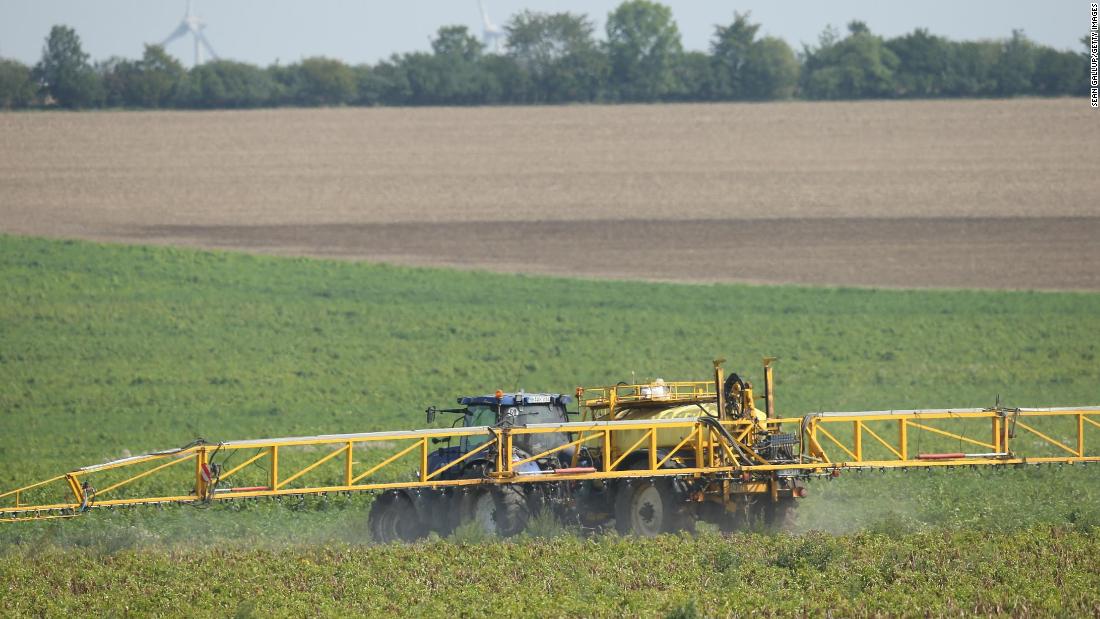[ad_1]
“EPA continues to find that there are no risks to public health when glyphosate is used in accordance with its current label and that glyphosate is not a carcinogen,” the agency said Tuesday.
The announcement comes after two high-profile court cases in which cancer patients claimed Roundup, a popular weedkiller containing glyphosate, caused their non-Hodgkin’s lymphoma.
But the EPA’s announcement saying glyphosate is still safe was a boon for Bayer, which has insisted the same all along.
“Bayer firmly believes that the science supports the safety of glyphosate-based herbicides, which are some of the most thoroughly studied products of their kind, and is pleased that the regulators tasked with assessing this extensive body of science continue to reach favorable conclusions,” the company said.
But that doesn’t mean all concerns have been alleviated.
Why the debate keeps brewing
“In fact, since IARC classified glyphosate, regulatory authorities in the United States, Europe, Canada, Japan, New Zealand and Australia have publicly reaffirmed that glyphosate does not cause cancer,” a spokeswoman said.
“We are not alleging that our clients got cancer from glyphosate alone,” he said. “Roundup contains animal fats and other ingredients that increase the carcinogenicity of the glyphosate.”
He said the EPA doesn’t require sufficient testing, “particularly of the formulated product,” Roundup.
There also are concerns about whether Monsanto has had undue influence over regulators.
Why glyphosate is the most widely used herbicide in the world
Supporters say glyphosate is critical for global farming and helps minimize carbon emissions.
“Without glyphosate, farmers would need to rely on plowing (or what is known as tillage), a weed control technique that turns over the soil,” Bayer said.
“Tillage typically requires the use of heavy farm machinery, which increases fuel consumption and causes soil disruption, both of which release greenhouse gases, like CO2, that contribute to climate change.”
Disrupting the soil can also cause erosion, which would let vital nutrients be washed away with the soil, the company said.
“Glyphosate-based herbicides enable farmers to control weeds with little or no tillage, which dramatically reduces the carbon footprint and helps farmers maintain healthier soil,” Bayer said.
US Secretary of Agriculture Sonny Perdue praised the EPA’s announcement that glyphosate doesn’t cause cancer.
“If we are going to feed 10 billion people by 2050, we are going to need all the tools at our disposal, which includes the use of glyphosate,” he said.
[ad_2]
Source link




